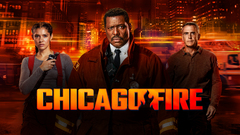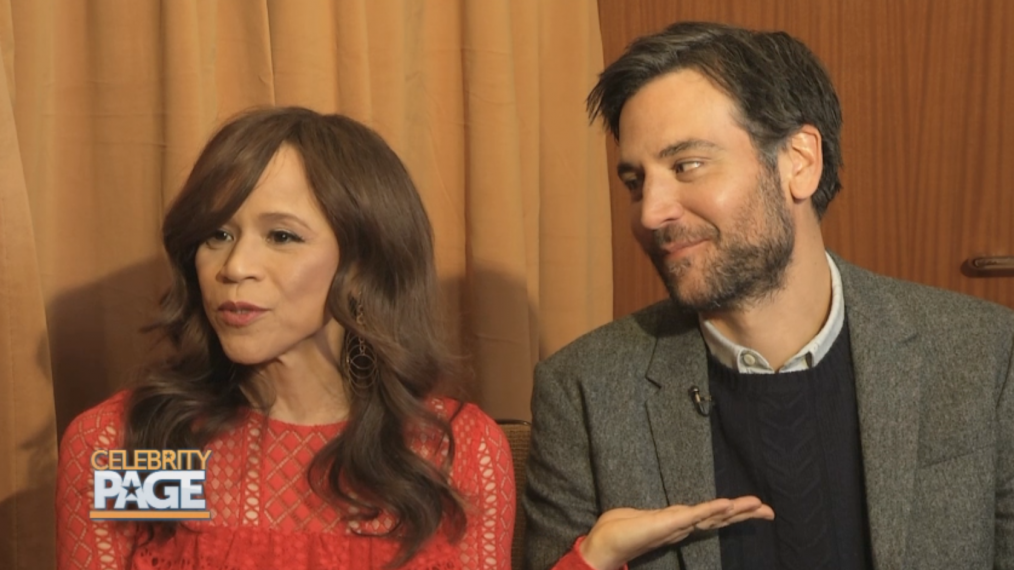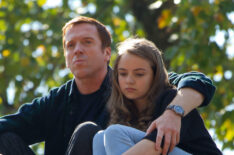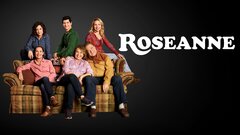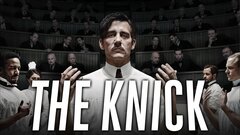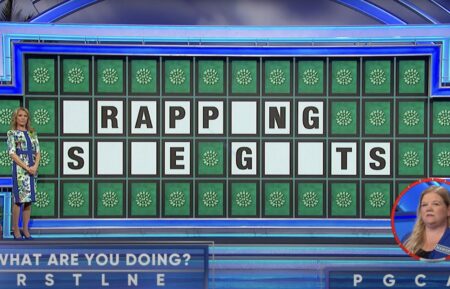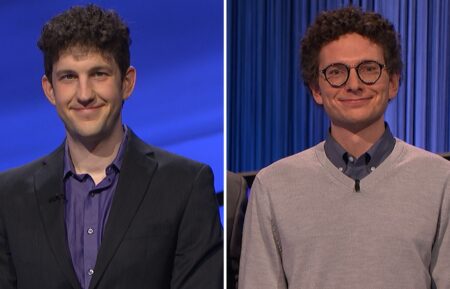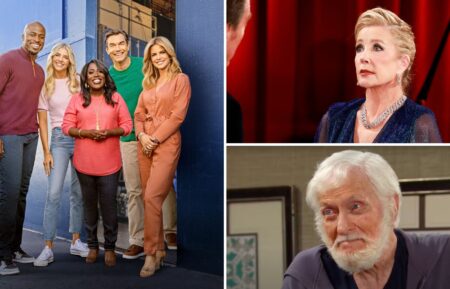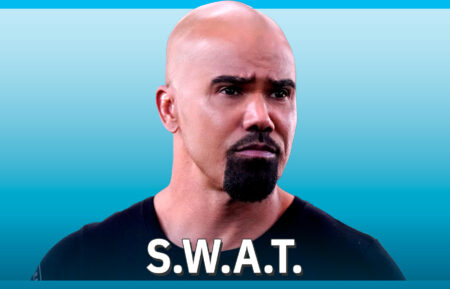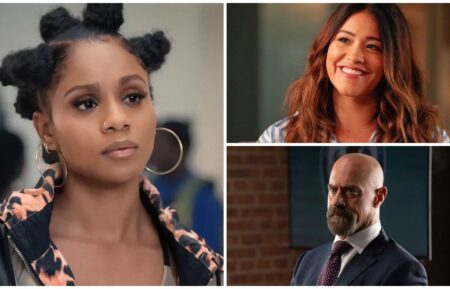Ask Matt: Musical TV (‘Jesus Christ Superstar’ & ‘Rise’), ‘Roseanne’ and Politics, Netflix Overload, and More
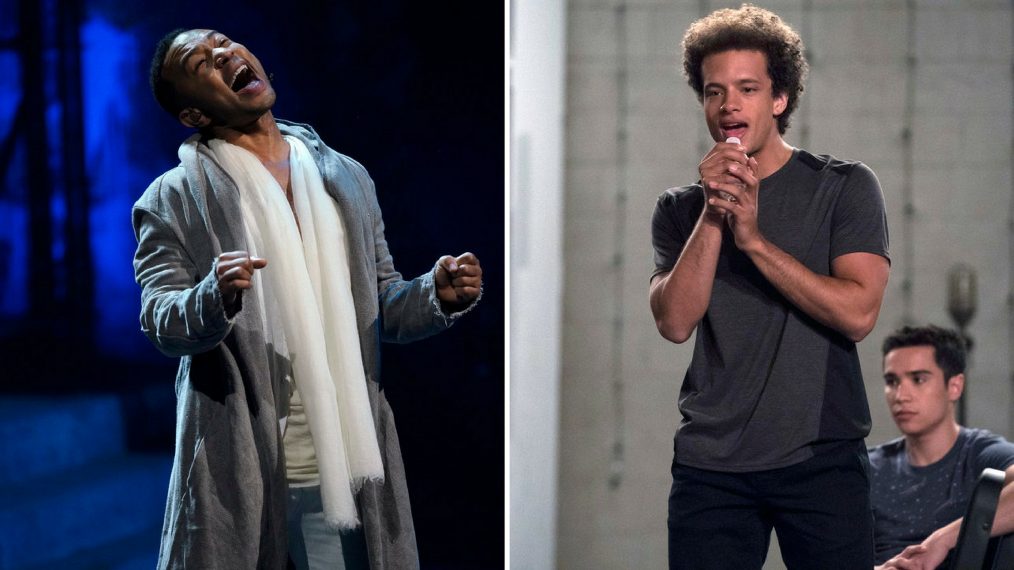
Welcome to the Q&A with TV critic (also known to some TV fans as their “TV therapist”) Matt Roush, who’ll address whatever you love, loathe, are confused or frustrated or thrilled by in today’s vast TV landscape. One caution: This is a spoiler-free zone, so we won’t be addressing upcoming storylines here unless it’s already common knowledge. Please send your questions and comments to [email protected] (or use the form at the end of the column) and follow me on Twitter. Look for Ask Matt columns on most Tuesdays and Fridays.
Superstar and Uneven Star Power
Question: I was very curious about what you thought about Jesus Christ Superstar, because I almost always agree with your reviews—and still do to a point. I`ve seen the play with the original Jesus, Ted Neeley, a couple times, and the movie a few more times. It`s one of my all-time favorites. I thought the TV version was very good: the production and the cast. Judas and Mary Magdalene were outstanding. Peter and the High Priests were great. Pontius Pilate was lacking somewhat vocally, but a great actor, and Herod (Alice Cooper) could have been more flamboyant, but worked the crowd well. My only real disagreement with you is John Legend as Jesus. He didn`t have the vocal chops or the acting chops for the job. His baritone voice didn`t do the trick—you need a strong tenor voice for Jesus. I don`t know what kind of acting John Legend has done before, but he needs more lessons. He was, in my opinion, just OK, especially compared to the other cast members. “Gethsemane” usually moves me to tears, but his version didn`t even come close. In the crucifixion scene, he seemed to put on some weird accent, which distracted me from the actual event. I think they just cast him for his star power to attract viewers. That said, I still really liked it, loved the live audience/mob there, but missed Ted Neeley—or someone like him. — Barbara
Matt Roush: I didn’t particularly dwell on the performances in my review, which called out Brandon Victor Dixon’s Judas and Sara Bareilles’ Mary Magdalene as obvious standouts. My fascination with this TV version of Superstar was in the production itself and the musical staging, with all of that movement and audience reaction and transparency with visible cameras and musicians on the towering scaffolding. This felt to me like a breakthrough moment for the live TV musical, with such energy and exultation in the entire enterprise that it led me to look past many of the performance shortcomings, including any of Legend’s. Calling him “soulful” seemed appropriate, but I too grew up with a version of Superstar where the Jesus character was sung with more emotive power—the concept album with rocker Ian Gillan as Jesus has always been my touchstone (and even then, Judas was the showstopper). But Legend certainly looked the part, and there’s little doubt his casting, as with many of these live TV productions starting with The Sound of Music, had at least as much to do with his celebrity as with his appropriateness for the role. It didn’t diminish my enjoyment in the production as a whole, and I had no issues with the crucifixion and especially the ascension, which has stayed with me all week.
Rise and Its Problematic Main Character
Question: I’ve given Rise a try, watched episodes 1 and 2, but can’t get past the white male privilege being displayed by the main character. I know that the timing of release of the show is out of the control of the producers, but how did they not see anything problematic in this white guy suddenly deciding he wants to run the theater program, shoving the woman of color (Rosie Perez’s character) out of the way in the process AND dumping a ton of extra work on his wife and family? I know the show paid a little bit of lip service to the idea that it was the principal pushing Rosie Perez’s character out of the job, but as soon as Lou was told that she still wanted the job, that should have been game over. Instead he sort of shrugs, has a blink of a moment of feeling bad, then offers her the job of his assistant? I can forgive most of the other clichéd characters/storylines (single mom cheating with the coach, star football player who is the perfect guy for the starring role, etc.), but the character of Lou (as portrayed by these writers) is a real deal-breaker for me. — Jane
Matt Roush: You’re not alone. My own review, which found much to like in the diverse group of students coming together for Spring Awakening, singled out the teacher as Rise’s possibly fatal Achilles’ heel. I referred to Lou (Josh Radnor) as “an aspirational bully” and a “tone-deaf nightmare,” and the set-up in which he wrests control of the drama department from Tracey (Rosie Perez) is inexcusable for all of the reasons Jane mentions. I also find it hard to believe that Lou has supposedly taught in this school system for 17 years, as he seems to have zero diplomatic skills and acts like everyone around him, except his boring family, is a stranger. I reviewed the series off of the first five episodes, and hope to find time to preview the second half of the season soon (which became available after I had filed my initial review). The fact that I’m not rushing to watch these episodes, when Rise represents two of my favorite genres (musicals and would-be tear-jerkers), says a lot about how problematic Lou is at the center of this very flawed show.
Can We Separate Roseanne From Roseanne?
Question: After finally catching up with the Roseanne premiere (we’re cord-cutters, so we have to wait a week to watch online), I’m not sure I get all of the complaints about Roseanne (Conner) having voted for Trump. Her character’s reasoning for it seemed to be purely economic: the same reasons a lot of older, white, lower middle-class people voted for Trump. Unlike Roseanne Barr, her character didn’t go off the deep end in defending Trump’s more ridiculous positions and actions. I can understand being disappointed that she voted that way, just as I’m disappointed so many other people just like her voted for Trump, but the blowback has been a bit much. (The blowback against Roseanne Barr’s politics, however, I completely get.) Having said that, I wish it had been handled better: The execution felt clumsy and I could actually see Roseanne reading a cue card at some point (which was distracting). The second episode (dealing with Mark’s “weird”—Darlene’s term—dressing habits) was much better and, I thought, handled the topic fairly realistically. (As a parent, I understand both wanting to support my son’s “weird” choices, but I also worry about how it will affect him socially in school.) — Scott
Matt Roush: The fact that the first attention-getting episode of Roseanne was able to find humor in the political divide, in a way we’ve rarely seen since All in the Family, is fairly remarkable. Yes, the star’s reintroduction to acting in front of a camera has had its awkward moments, but there’s undeniably something genuine in watching the Conner family still struggling financially, and now dealing with parenting issues in the next generation. The challenge, as it was in the original series, is how and whether it’s possible to separate an appreciation for the show from one’s reaction to the star’s outrageous actions and statements off-camera. (My collection of obscene faxes—this was in the 1990s, before e-mail—from her out-of-control Tom Arnold period, when she saw any criticism as a personal attack, makes me glad Twitter didn’t exist in those bad old days.)
Question: I watched the first Roseanne, and appreciated that her sister shared a differing political opinion, as do my sister and I. However, the more I get to know about Roseanne Barr herself, I am repulsed by her varied opinions that have been exposed because they show her bigotry, hatred and exclusion. Besides that, I found the new show was a formulaic sitcom that lost its initial attraction. So Dan and Roseanne are retired now and they still are running their kids’ lives? I did not find the show funny or in any way cutting-edge or amusing or poignant in a way The Middle has in all their seasons. I know this is not a question, but I wanted to express myself in some way to someone who is listening. — EJ
Matt Roush: I get that the show isn’t as revolutionary as it once was, and certainly its style isn’t, but as this season progresses, with a storyline involving opioid abuse and addiction, it’s not entirely accurate to dismiss what they’re aiming for here as formulaic and old-hat. There’s still a bite to Roseanne—and the fact that Roseanne and Dan aren’t comfortably retired (she’s an Uber driver with a bum knee) and can’t enjoy their empty nest seems realistic to me. And while Roseanne herself is as ever a lightning rod for controversy, what can’t be argued is the chord the show seems to be striking with the TV audience, which is flocking to a prime-time scripted comedy in real time in numbers we haven’t seen since the arrival of DVR time-shifting, cord-cutting and so many streaming options.
Overlooked From the Century’s Best Episodes
Question: I have a nominee for the best TV episodes list (TV Guide Magazine’s “The 65 Best Episodes of the 21st Century): “Get the Rope” from the first season of The Knick on Cinemax. That episode was as close to a perfect hour of TV as I’ve ever seen (although a few episodes of The Americans come close). The plots, the music, acting, cinematography: all came together for an intense episode that both illustrated many of the issues in that time period and moved the story forward for many of the characters. It also showed real character development in several cases. I know putting together such a list is a challenge, but for me, including that episode is a no-brainer. — Robin
Matt Roush: This spectacular episode of mob violence is a great choice, and I wish I’d (or we’d) thought of it when we were brainstorming the list, trying to narrow down our many options of shows and episodes. For whatever reason, The Knick didn’t come up in our discussions, and it should have. What I like about your choice is that it meets many of the criteria I used in making my picks: a significant and impactful episode that stands on its own, has style to spare, and advances the story and character development in pivotal ways, while playing to the show’s strengths.
How Much Netflix Is Too Much?
Question: Amidst the continuing barrage of new series from Netflix, I watched a couple of returning favorites, Love and Santa Clarita Diet, last month. I keep a list of Netflix series that I like well enough to keep watching if more seasons are forthcoming, and noticed that the list had grown to 15. I don’t know if all of those will be returning, but it has definitely made me think twice about watching anything new. What if I like it and want to see more? It’s a pleasant dilemma, but impossible in terms of time to get around to seeing everything. The show I am most eager to see more of is Merli, the high-school dramedy from Catalonia. I know there are two more seasons of the show, but I’m wondering if/when Netflix might get them. How do you cope with Netflix series? Would a show like Merli ever be on your radar when Netflix has so many buzzier shows? Do you have to watch everything they send you for review? If not, how do you choose? — Frank
Matt Roush: This is a fair question about a critic’s process, and rarely has it been more challenging than when dealing with the non-stop influx of programming on Netflix, which could easily be someone’s full-time job—but mine entails trying to keep up with the best on many other platforms (including but not limited to Amazon Prime and, perhaps most critically these days, Hulu) as well as on traditional cable, premium and network TV. A fact of this critic’s life is that there isn’t as much time now for run-of-the-mill TV (formulaic procedurals in particular), because there’s always something new to sample, sometimes involving the digestion of entire seasons of new and returning shows. (It’s almost like being a book critic anymore, and if you’re spending upwards of 10 hours binge-watching something, that’s 10 hours of something else you’re not looking at.)
Not complaining, because you never know where the next Ozark, Godless or Santa Clarita Diet (which I’m still trying to find time to finish) may be lurking, and the sense of discovery is still exciting. The frustration is when you can’t make time to watch things you’re eager to see, like Amazon’s Sneaky Pete and a new season of Bosch (a current project), and there’s a fear you’ll miss something important while slogging through 10 hours of a misbegotten Lost in Space reboot (more on that next week). And back to Netflix: They are much more aggressive in promoting their original series than their many international acquisitions, and I readily admit Merli is not on my radar and may never be, though it sounds so much better than something like Rise. Your final question about how I choose what to look at is basically a matter of instinct, news judgment and knowing my audience, honed by having covered this turf for many years. An imperfect art, and always evolving, which keeps it fresh.
Making Tributes Matter
Question: I really appreciate it when TV shows honor cast and crew members when they die with an obituary line at the end of the episode. NBC’s Chicago Fire had a nice photo of DuShon Monique Brown announcing her passing. I recognized her picture as a member of the cast. But it would be nice if they would add a title for all the others, so the rest of us know what role they played in the production like writer, producer, cameraman, etc. Could you pass this on to all the people who are in charge of this??? — Mari
Matt Roush: The best I can do is to publish this suggestion and hope it catches on. I likewise appreciate during the “In Memoriam” montages in awards shows when behind-the-scenes talents are recognized, and they are almost always identified with their specialty. The same should apply to those “in memory of/dedicated to” cards that air at the end of many TV episodes.
That’s all for now. We’ll pick up the conversation again soon. Thanks as always for reading, and remember that I can’t do this without your participation, so please keep sending questions and comments about TV to [email protected] or shoot me a line on Twitter (@TVGMMattRoush), and you can also submit questions via the handy form below.
